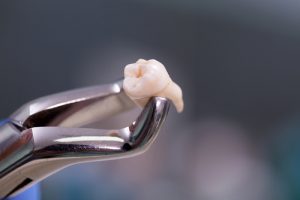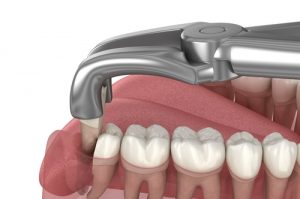Painless Tooth Extractions for Optimal Oral Health
When it comes to dental procedures, few experiences can be as daunting as tooth extraction. However, our Auburn, IN oral surgeon, Dr. Nate Heffelfinger has made significant strides in ensuring that dental extraction is as comfortable and painless as possible. In the pursuit of optimal oral health, Dr. Heffelfinger is equipped with advanced techniques and technology that minimize discomfort while preserving the well-being of your teeth and gums.
What Is a Tooth Extraction?

Benefits of Tooth Extractions
- Preserving oral health: Extracting a severely damaged or infected tooth can prevent the spread of infection and protect the health of neighboring teeth and gums.
- Pain relief: Removing a painful or diseased tooth can provide immediate relief from discomfort and improve overall oral comfort.
- Preventing further complications: Extraction can prevent complications such as abscesses, cysts, or damage to adjacent teeth.
- Facilitating orthodontic treatment: Extraction may be necessary to create space for braces or other orthodontic treatments.
Candidacy for Tooth Extractions
Dr. Heffelfinger may recommend tooth extraction for individuals who:
- Have severely damaged or decayed teeth beyond repair.
- Experience chronic or severe toothache.
- Have impacted wisdom teeth (third molars) causing pain or potential complications.
- Require teeth removal for orthodontic treatment.
- Have teeth affected by advanced gum disease.
- Experience overcrowding, necessitating removal for improved alignment.
- Need extraction as part of a larger dental treatment plan, such as dentures orimplants.
Tooth Extraction Procedure
Administering Anesthesia
Before the surgical extraction, a local anesthetic is administered to numb the area around the tooth. In some cases, conscious sedation or general anesthesia may be used for complex or multiple extractions.
Loosening the Tooth
Using specialized instruments, your Auburn oral surgeon gently loosens the tooth from its socket. In some cases, a small incision may be made in the gum tissue to facilitate the process.
Extraction
Once the tooth is sufficiently loosened, it is carefully removed from the socket. The area is then cleaned to ensure no debris remains.
Post-Extraction Care
Dr. Heffelfinger may provide post-operative instructions, which often include recommendations for pain management and aftercare.
After Care Tips
After your surgical extractions , it’s important to follow these guidelines to promote optimal healing and prevent any complications:
- Gentle care: Avoid touching the extraction site with your tongue or fingers. This helps prevent irritation or infection.
- Bite on gauze pad: Bite down gently on the provided gauze pad for about 30 minutes after the procedure to control bleeding.
- Apply cold compress: Apply an ice pack to the area in intervals of 10 minutes on, 10 minutes off, for the first few hours to reduce swelling.
- Avoid strenuous activities: Refrain from vigorous activities for at least 24-48 hours after the extraction. This helps prevent excessive bleeding and discomfort.
- Soft diet: Stick to soft, easy-to-chew foods for the first few days. Hot food such as soups and mashed potatoes, along with yogurt and smoothies are good choices.
- Avoid straws and smoking: Sucking motions can dislodge blood clots, delaying the healing process. Refrain from smoking, as it can hinder proper healing.
- Rinse with salt water: After 24 hours, gently rinse your mouth with warm salt water (1/2 teaspoon of salt in 8 ounces of water) several times a day to promote healing and reduce bacteria.
- Medications: Take any prescribed medications as directed. Over-the-counter pain relievers can be used as recommended by your dentist.
- Follow up: Attend any scheduled follow-up appointments to ensure proper healing and address any concerns.
- Contact Dr. Heffelfinger: If you experience excessive bleeding, severe pain, or any unexpected complications, don’t hesitate to reach out to your dentist promptly.
Frequently Asked Questions
Tooth extractions are performed under the influence of local anesthesia, which numbs the area around the tooth, making the procedure itself relatively painless. Patients typically feel little to no discomfort during the extraction. However, it’s important to note that some mild discomfort or soreness is normal in the days following the extraction.
The duration of recovery after a tooth extraction can vary depending on the complexity of the extraction and individual healing capacities. Generally, it takes a few days to a couple of weeks for the gum tissue to heal completely. In simpler extractions, where there are no complications, patients often experience minimal discomfort and can resume normal activities within a day or two.
The most painful tooth to extract is often considered to be the impacted wisdom tooth (third molar). This is because wisdom teeth are located at the back of the mouth, which can make them more difficult to access and extract.
It’s generally recommended to avoid vigorous exercise for the first 24 to 48 hours after a tooth extraction. Strenuous activities can increase blood flow and may lead to prolonged bleeding or discomfort at the extraction site. Light activities like walking are usually acceptable, but listen to your body and avoid anything that causes pain or discomfort.
Experience Comfortable Tooth Extractions at Smiles for Life
Tooth extractions are a crucial aspect of maintaining optimal oral health. By seeking timely dental care and considering extractions when necessary, individuals can enjoy a pain-free, comfortable smile. If you suspect you may require a tooth extraction,schedule a consultationat Smiles for life by giving Dr.Heffelfinger a call at 260-925-4290 to discuss your options and receive personalized care.
We’re eager to serve Indiana patients in Waterloo, Garrett, Butler, Auburn and the surrounding areas.

